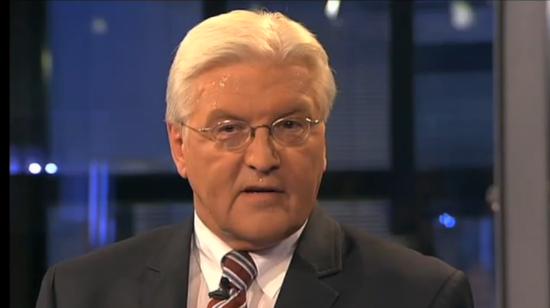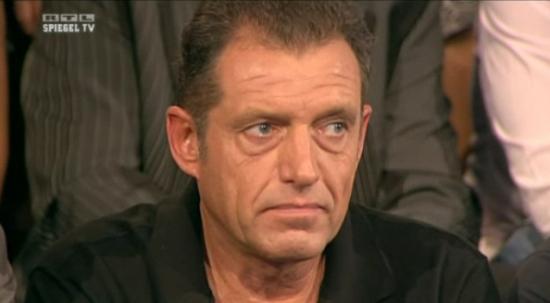Electoral Disaster Looms for German Left
It has not been a good summer for the German Social Democratic party (SPD) and its chancellor candidate Frank-Walter Steinmeier. With five weeks remaining before the German general elections on September 27, all the polling data continues to shows the Social Democrats badly trailing the rival Christian Democrats of Chancellor Angela Merkel. The latest (8/20) “Deutschland Trend” poll of German public television ARD shows support for the Social Democrats running at 23% as compared to 36% for the Christian Democrats. The 23% score is a slight uptick from the 22% of one week before: the lowest score ever recorded for the SPD in the history of the poll.
When respondents are asked to state their personal preference between Merkel and Steinmeier, the prospects look even worse. Asked who they would vote for if the German chancellor was directly elected, only 23% give the nod to Steinmeier as compared to fully 62% for Merkel.
Far from improving matters, a so-called “Germany Plan” unveiled by Steinmeier at the beginning of August has been greeted with reactions ranging from skepticism to outright derision. The “plan” promises to create some four million new jobs in Germany by 2020, thus achieving full employment. This “ambitious” figure, as the candidate himself puts it, includes some two million seemingly green-tinted jobs in heavy industries (“the next industrial revolution will bring together traditional production and environmentally-friendly technologies”), a whopping one million in the health sector, and another 500,000 in “creative” industries.
In this already grim situation, the chancellor candidate took to the airwaves earlier this month in what was billed as an American-style “townhall meeting” on Germany’s RTL television. The result has been variously described as a “flop” by the em>Süddeutsche Zeitung<, Germany’s leading daily of a Social-Democratic persuasion, and a “debacle” by the country’s leading conservative daily, the Frankfurter Allgemeine Zeitung (8/18, paper edition). A mere 810,000 viewers are estimated to have tuned in to the Steinmeier “townhall meeting”: a meager 4% of the total television audience. As Berthold Kohler noted in the em>Frankfurter Allgemeine Zeitung<, the celebrity cooking show “The Perfect Celebrity Dinner”, which was running in the same timeslot on another channel, pulled in twice that number.
In retrospect, however, Steinmeier and the SPD might be relieved that so few viewers were watching. Only minutes into the program, Steinmeier broke out into a massive sweat rivaling the worst televised moments of Richard Nixon or Albert Brooks comic “flop sweat” attack in the movie Broadcast News. The reaction was provoked by a recorded question from an internet user, one Mike Nöcker from Hamburg, who sarcastically described the job projections in Steinmeier’s “Germany Plan” as “the mother of all campaign promises” and wondered whether Steinmeier did not think he would enter the history books as a result: namely, next to the “flourishing landscapes” [blühende Landschaften] that Helmut Köhl once envisioned for the still today economically- depressed eastern German states.
 Frank-Walter Steinmeier answers German voters' questions on RTL
Frank-Walter Steinmeier answers German voters' questions on RTL
The scene is viewable here (1:26-2:40). Oddly enough, it has been placed on YouTube by the Social Democratic party itself. (The full RTL broadcast is available here.)
Presumably helped by the off-camera intervention of an alert make-up person, Steinmeier subsequently regained his composure. But the rest of the show did not go much better for him. The questions appeared to be almost exclusively hostile, including several from persons in economically-precarious situations who serially took to task the German government’s response to the economic crisis. Since that government – a “grand coalition” between Christian Democrats and Social Democrats – is, after all, led by Chancellor Merkel, such questions could just as readily have been interpreted as criticism of Steinmeier’s rival. Nonetheless, his responses to them were pained and awkward.
Thus, for example, a newly unemployed former sales clerk at a bankrupt German department store chain asked why the government had offered help to the automaker Opel, but had abandoned him and his colleagues to their fate. Thereupon, the candidate launched into a sort of bizarre pep-talk, conceding that the future might look bleak, but encouraging the seemingly bewildered questioner “not to hang his head” and “always to look forward.” What he did not do was to answer the question.
In a perhaps even more awkward segment, a former Bundeswehr officer who had survived a suicide attack in Afghanistan lambasted the German mission in the country for its ambiguities and insufficiencies. When Steinmeier attempted to chat up the performance of the German mission by coyly comparing its supposed successes in northern Afghanistan to the situation in “the southwest” and “the east” of the country – i.e. where American and British troops are stationed – the man stared at him with a stone-faced expression that was more eloquent than any verbal rejoinder. When Steinmeier later attempted to recapture some of the thunder from Gerhard Schröder’s 2002 election campaign by underscoring that the SPD did not support all military interventions and had notably opposed the American “adventure” in Iraq, the same soldier yelled out: “Afghanistan is an adventure!"
 A former Bundeswehr officer listens to Steinmeier on RTL
A former Bundeswehr officer listens to Steinmeier on RTL
As it so happens, in 2002 Steinmeier was Schröder’s chief of staff and he is widely believed to have been the architect of the Schröder government’s policy of radical opposition to the Bush administration over Iraq. In 2005, Schröder and the SPD would go down to defeat in early elections. But the SPD would make the race sufficiently close to win a spot as junior partner in a “grand coalition” and to obtain the foreign ministry for Steinmeier. Two years later, French President Jacques Chirac, Schröder’s erstwhile partner in the self-styled “axis of peace,” would likewise bow out. In the person of Steinmeier, the upcoming German elections could thus see the last vestiges of the “axis of peace” exiting from the European political scene.
In light of the polling numbers, virtually the only way that Steinmeier could actually win the chancellorship would be with the open or tacit support of the “post-Communist” Left Party. A, so to say, “united left” of the Socialists, (post-)Communists and Greens would need to recoup around 5% in the polls between now and election day to get to 50%. (For evidence that the SPD party leadership has been contemplating the prospect of such a “red-red-green” alliance, see my earlier FF report here.)
But at this point the SPD would presumably be satisfied if it could hang on as junior partner in another “grand coalition” government headed by Chancellor Merkel. The Chancellor has stated her preference for a more traditional and ideologically-consistent “right” coalition with the Free Democratic Party (FDP). But only a slight erosion in the current levels of support for either the Christian Democrats or the Free Democrats would open the door to another “grand coalition.”
In any case, Frank-Walter Steinmeier is evidently not prepared to go down without a fight. Thus, last Saturday, in a remarkable about-face, Steinmeier suddenly announced that if elected chancellor he would establish a “concrete plan of action” [konkreten Fahrplan] for withdrawing German troops from Afghanistan. Coming only days after he had defended the German mission on RTL, the announcement gave off a certain whiff of desperation. Whether it will have the desired effect on German voters remains to be seen. They might, after all, recall that it was none other than the government of the Social Democratic Chancellor Gerhard Schröder that sent German troops to Afghanistan in the first place.

